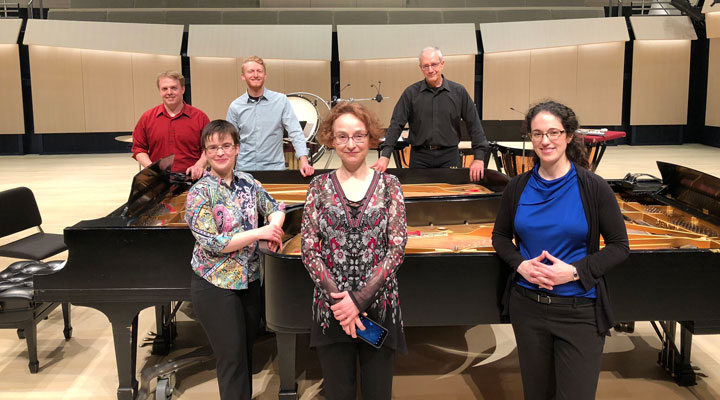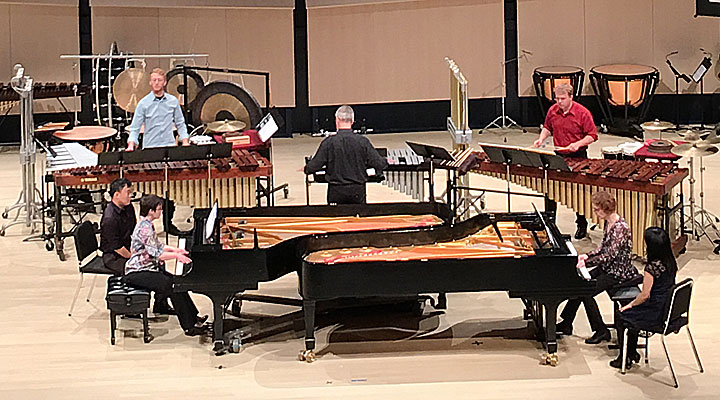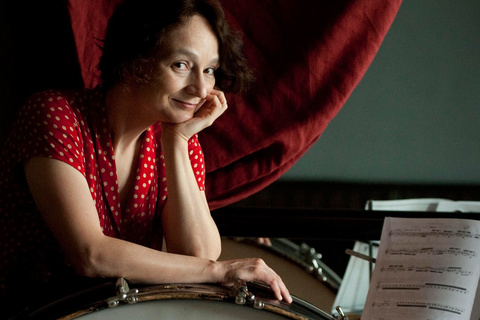

The Center for New Music Ensemble
with guest pianist Anna Arazi
performs the music of
Guest composer and pianist Ketty Nez (Boston University)
Sunday, April 15, 2018 at 7:30 in the Concert Hall
Program
4 visions (2017) |
Ketty NEZ (b. 1965) |
windmills
|
| Courtney Miller, oboe Ketty Nez and Anna Arazi, piano Peter Naughton and Travis Newman, percussion David Gompper, conductor |
Intermission
Suite for Two Pianos and Percussion (2002)with video projection |
András HAMARY (b. 1950) |
Window on Infinity
|
| Ketty Nez and Anna Arazi, piano Peter Naughton and Travis Newman, percussion David Gompper, conductor |
Performer
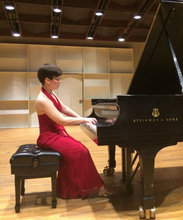
Program Notes
4 visions
Written in Denver during the summer of 2017, 4 visions is an exploration of mirroring, echoing, allusions, and the establishment and disintegration of rhythmic and melodic patterns. The four movements follow each other without interruption: windmills, canons, escape, and dream at midnight. Textures are derived from my opera Lina and the Wolf. The last movement began as one of the arias, a setting of Anna Akhmatova’s poem “In a Dream,” a line of which evokes a mood of otherness: "If only at midnight/you'd send me a greeting across the stars.” —Ketty Nez
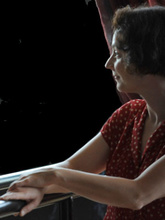
Suite for Two Piano and Percussion
Commissioned by the Hungarian Radio, Suite for Two Piano and Percussion was premiered in a public concert in 2002 at the Budapest Hungarian Radio Studio, by the dedicatee Márta Gyulás and the composer. The first movement, Window on Infinity, is a “galactic” piece. One sees traces of the movements of stars, coming closer and moving further away, and hears their collisions. The second movement, Lattices, is the most “Bartókian” of the Suite, and alludes to Bartók’s magnificent Sonata for Two Pianos and Percussion. Strange resonances and echoes emanate from the interiors of the pianos, as if these instruments were cathedrals. The third movement, a true Perpetuum mobile, includes no interruptions or pauses. The performers play every attack, and the first pianist plays only white keys. Starting pianissimo, the music incessantly grows in dynamic, ending it fortissississimo, at the same time spanning the entire keyboard range in slow ascent. In the fourth movement, Song with Strophes, a very simple short melody serves as the basis of variations, through means of canons and echoes. The last variation alludes to the resonant timbre of the cimbalom, a hammered dulcimer used in East European folk music. I added my film for a subsequent performance in Hamburg.—András Hamary
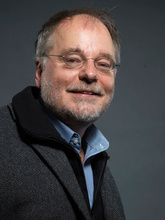
He was awarded the Composition Prize of the City of Stuttgart for Timor - Fragmente zur Angst (“Timor: Fragments about Fear”), five pieces for orchestra written while he was still studying composition under Milko Kelemen. Since the late 1970s, Hamary has written compositions in an extremely varied range of genres, including the opera Seid still (“Be Still”), which was commissioned by the Second Biennale in Munich; the performance piece Regenzeit (“Rainy Season”) in collaboration with the Frankfurt-based choreographer Christian Golusda on a commission from Germany's Südwestrundfunk (SWR); and the ballet Der Welt Lohn (“The World's Reward”) for vocal soloists, choir and orchestra, which was composed for the 200th anniversary of Würzburg's Mainfranken Theater.
Hamary has also focused his attention as a conductor entirely on new music. In Stuttgart he founded “ensemble avance”, a group of young musicians dedicated to the interpretation of contemporary music. With them he has made numerous recordings for radio and premiered the works of celebrated composers. For his work conducting Adriana Hölszky's opera Bremer Freiheit (“Bremen Freedom”) at the First Munich Biennale he received the BMW Musical Theatre Award for the best musical direction.
